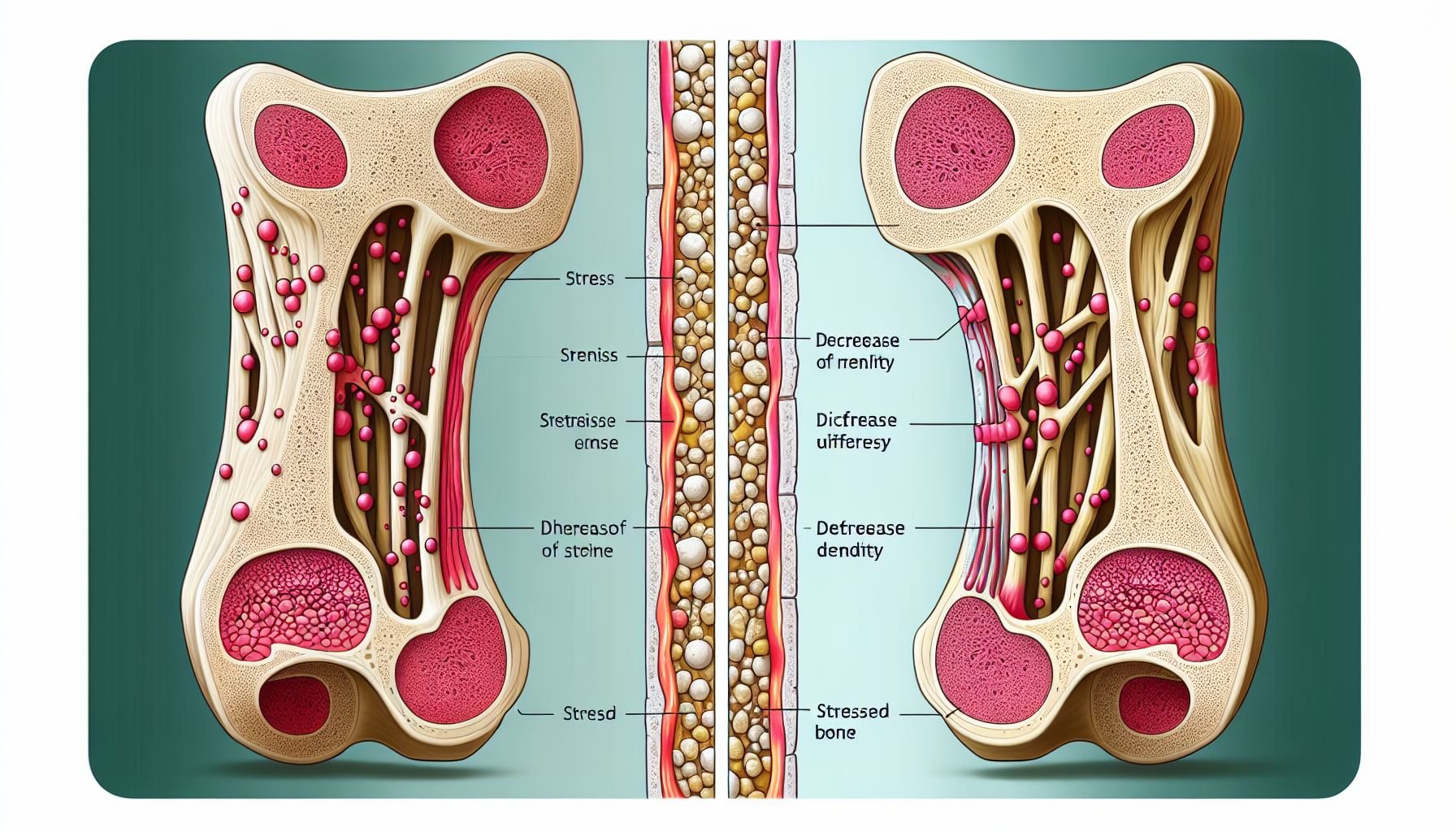Modern life is replete with constant challenges and stressors, from juggling work and family life to navigating social relationships. However, the effects of chronic stress extend beyond our psychological state; they can also significantly impact our physical health, particularly our bones. Understanding the intricate relationship between persistent stress and bone health is crucial for anyone looking to maintain a healthy and active lifestyle.
Understanding Bone Density and Its Importance
Bone density refers to the amount of bone mineral in bone tissue. The greater the density, the stronger and more resilient the bones are to external stresses and strains. Maintaining healthy bone density is essential for overall health, mobility, and quality of life. It prevents osteoporosis, a condition characterized by porous and fragile bones, which significantly increases the risk of fractures.
As we age, bone density naturally decreases, but certain lifestyle factors can accelerate this loss. Chronic stress is emerging as a significant risk factor for reduced bone density. When stress becomes a constant companion, it can lead to a cascade of hormonal changes that negatively affect bone health.
The Biological Link Between Stress and Bone Health
When the body is under stress, it responds by releasing cortisol, a hormone produced by the adrenal glands. While cortisol is essential for the body’s ‘fight or flight’ response and helps manage stress in the short term, consistently high levels can lead to various health issues, including a decrease in bone density. Prolonged exposure to cortisol can interfere with bone remodeling—a process where old bone tissue is replaced by new bone tissue—resulting in decreased bone formation and increased bone breakdown.
Additionally, chronic stress often leads to poor lifestyle choices such as inadequate nutrition, lack of exercise, and disturbed sleep patterns, all of which can further impair bone health. Understanding the role of protein in maintaining bone health is a critical aspect of addressing these lifestyle factors, as adequate protein intake is vital for bone repair and regeneration.
Strategies to Combat Stress and Support Bone Health
To mitigate the effects of stress on bones, it is essential to adopt a holistic approach that encompasses stress management techniques, proper nutrition, regular physical activity, and adequate sleep. Here are some strategies to consider:
Stress Management Techniques
Practicing mindfulness, meditation, or deep-breathing exercises can help regulate the body’s stress response and reduce cortisol levels. Engaging in hobbies and activities that bring joy and relaxation can also be effective in managing stress.
Nutrition for Bone Health
A balanced diet rich in calcium, vitamin D, magnesium, and potassium is essential for maintaining strong bones. The contributions of potassium to bone health and density should not be underestimated, as this mineral plays a crucial role in preserving bone mineral density.
Physical Activity
Weight-bearing exercises, such as walking, jogging, and strength training, can help build and maintain bone density. Optimizing bone health in children: The role of physical activity highlights the importance of establishing exercise habits early in life to ensure long-term bone health.
Adequate Sleep
Quality sleep is vital for overall health and allows the body to repair itself. Chronic sleep deprivation has been linked to lower bone density, making it critical to address any sleep disorders or habits that may be affecting sleep quality.
The Broader Context of Health and Chronic Stress
Chronic stress doesn’t only affect bone health; it has implications for various aspects of physical well-being. For example, the relationship between stress and cardiovascular health is well-documented, with stress contributing to hypertension and other heart-related issues. Individuals concerned about the broader impact of stress on their health may benefit from exploring information on cardiovascular health.
External Resources to Further Your Understanding
- The National Osteoporosis Foundation provides comprehensive resources on bone health, including the effects of lifestyle factors on bone density.
- The Mindful Awareness Research Center at UCLA offers resources for practicing mindfulness, which can help reduce stress levels.
- The Sleep Foundation provides research and information on how sleep affects various aspects of health, including bone health.
- The American Psychological Association offers resources on managing chronic stress and its impact on physical health.
Maintaining Healthy Bones as We Age
As we get older, maintaining bone health becomes increasingly important. Best practices for bone health maintenance with age offers valuable insights into the steps we can take to preserve bone strength throughout our later years.
Conclusion
Chronic stress is not just a mental health issue—it’s a bone health issue as well. By understanding the connection between stress and bone density, and taking proactive steps to manage stress and support bone health, individuals can protect themselves against the adverse effects of stress and maintain a strong foundation for overall health.
In conclusion, the impact of chronic stress on bone density is a multifaceted health concern that requires attention and action. By incorporating stress reduction techniques, a balanced diet, regular physical activity, and good sleep hygiene into our daily routines, we can enhance our bone health and overall well-being. Let’s take the initiative to understand and mitigate the effects of chronic stress on our bones, ensuring a stronger and healthier future.



